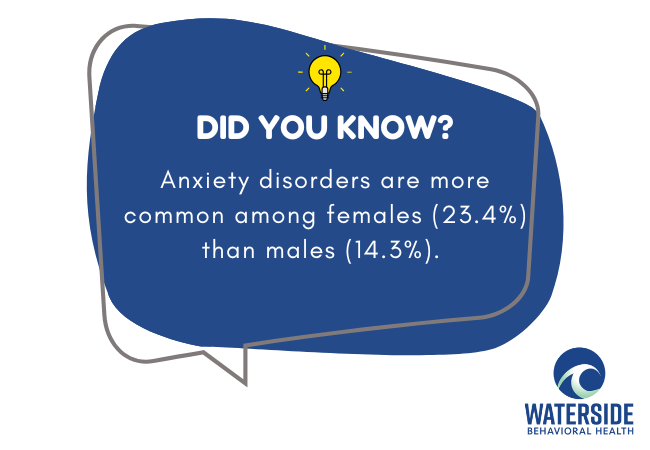Anxiety has become one of the most prevalent mental health challenges in the modern world. Characterized by persistent worry, unease, or nervousness, it can interfere with daily functioning, relationships, sleep, and overall quality of life. As the pace of life accelerates and stressors continue to mount, many are turning to integrative approaches that don’t just manage symptoms, but help reconnect the mind and body in a more grounded, meaningful way.
Among the most widely studied and applied of these approaches are mindfulness and meditation. These practices, which emphasize present-moment awareness and emotional regulation, are no longer relegated to spiritual traditions—they’re now recognized across clinical settings as valuable tools in addressing anxiety and emotional distress.
But how exactly do mindfulness and meditation work? Can they genuinely help someone who feels caught in the spiral of worry, racing thoughts, and panic? And how can these practices be integrated into professional care options such as Anxiety Treatment in Massachusetts? Let’s explore what the science and clinical experience say about this powerful mind-body approach.
The Relationship Between Anxiety and Attention
Anxiety is often rooted in patterns of overthinking and excessive focus on the future. People living with anxiety tend to mentally “time travel,” imagining worst-case scenarios or ruminating on potential threats. This cycle activates the body’s stress response, elevating cortisol levels and keeping the nervous system in a state of hypervigilance.
Mindfulness, at its core, trains attention. Instead of allowing thoughts to wander into past regrets or future fears, mindfulness calls us back to the present moment. Through simple practices like breath awareness, body scans, and observation of emotions without judgment, individuals learn how to gently break the loop of anxious thinking.
In meditation, the individual is encouraged to sit with their thoughts, sensations, and emotions—without trying to change or fix them. This doesn’t mean ignoring distress; instead, it cultivates a sense of non-reactivity. In this calm, observant state, one can begin to see that thoughts are just thoughts—not necessarily truths or commands.
This realization is pivotal. It’s why meditation is now frequently incorporated into Mental Health Treatment Programs Massachusetts, often used alongside other evidence-based modalities. By helping individuals build a sense of inner stability and awareness, mindfulness supports recovery from anxiety on both neurological and emotional levels.
What the Research Shows
In recent decades, mindfulness-based interventions (MBIs) have undergone extensive study in clinical psychology and neuroscience. Programs like Mindfulness-Based Stress Reduction (MBSR) and Mindfulness-Based Cognitive Therapy (MBCT) have been shown to reduce anxiety, depression, and even prevent relapse in individuals with recurrent mood disorders.
One of the key reasons mindfulness helps is because it changes how we relate to our thoughts. Instead of trying to control or avoid them—which often makes anxiety worse—mindfulness teaches acceptance. Studies using functional MRI scans have shown that mindfulness meditation reduces activity in the amygdala, the part of the brain associated with fear and emotional reactivity.
Additionally, long-term meditation practice can strengthen the prefrontal cortex, improving attention regulation and executive function. These brain changes aren’t just theoretical—they translate into real-world improvements in emotion regulation, resilience, and decreased symptoms of anxiety.
Incorporating mindfulness into more traditional therapeutic models, such as Cognitive-Behavioral Therapy in Massachusetts, often enhances outcomes. Patients are better able to observe and challenge unhelpful thought patterns when they have the tools to pause and reflect without judgment.
It’s important to acknowledge that while mindfulness is incredibly effective, it is not a “quick fix.” Like physical exercise, its benefits are cumulative. Daily practice—whether just a few minutes or longer dedicated sessions—helps build mental and emotional strength over time.
Many individuals who struggle with anxiety also experience co-occurring mood disorders, especially depression. The overlap between these conditions can complicate treatment, but mindfulness serves as a bridge that addresses both. Practicing moment-to-moment awareness helps individuals step out of the grip of automatic negative thoughts, improving symptoms of anxiety and supporting Depression Therapy in Massachusetts.
By focusing on internal experience rather than trying to control external circumstances, individuals cultivate a sense of agency and calm. The act of sitting in stillness, breathing mindfully, and simply being present can be profoundly healing in a world that often demands constant doing.
In therapeutic settings, clinicians are increasingly blending mindfulness with other modalities to meet the complex needs of clients. For example, Dialectical Behavior Therapy in Massachusetts includes mindfulness as one of its core skill sets. DBT teaches people how to observe emotions without immediately acting on them, which is essential for managing anxiety, especially when it’s connected to past trauma or relational difficulties.
Some people also carry anxiety that stems from past experiences of harm, neglect, or instability. These individuals often benefit from trauma-informed mindfulness, which is gentle, invitational, and avoids triggering overwhelming sensations. This approach is commonly included in Trauma Therapy in Massachusetts, helping survivors build safety in their own bodies and gradually reconnect with their internal world.
Unlike some wellness trends that fade quickly, mindfulness and meditation have stood the test of time because of their simplicity and depth. They don’t require fancy equipment, long therapy sessions, or external validation. All that’s needed is a few minutes of quiet, an open mind, and a willingness to turn inward.
How Mindfulness and Meditation Help with Anxiety
Research has increasingly demonstrated the effectiveness of mindfulness and meditation in reducing anxiety symptoms. Here’s how they work:
1. Reducing Rumination
Anxiety often feeds on repetitive, negative thought loops. Mindfulness teaches individuals to observe these thoughts without engaging or spiraling deeper into worry, thus breaking the cycle of rumination.
2. Calming the Nervous System
Mindfulness practices activate the parasympathetic nervous system, promoting relaxation and reducing the “fight-or-flight” response triggered by anxiety. Regular meditation can lead to lower cortisol (stress hormone) levels and a decrease in physiological symptoms like rapid heartbeat and shallow breathing.
3. Enhancing Emotional Regulation
Mindfulness improves the brain’s ability to regulate emotions, allowing individuals to respond to anxiety triggers with greater calmness and clarity rather than reacting impulsively.
4. Increasing Present-Moment Awareness
Anxiety often stems from worrying about the future or dwelling on the past. Mindfulness anchors attention in the present, where individuals can better manage their immediate experiences without getting lost in “what ifs.”
5. Building Resilience
With regular practice, mindfulness and meditation help build psychological resilience, enabling individuals to bounce back more quickly from stressful situations.
The integration of mindfulness into mental health treatment doesn’t negate the value of traditional therapy—it enhances it. Individuals attending an intensive outpatient or residential program may engage in guided meditations, mindful movement (such as yoga), or reflective journaling to deepen their emotional awareness.
Support from a clinical team is crucial. Professional guidance helps individuals discern when and how to use mindfulness effectively. At times, especially for those in crisis or with unresolved trauma, solo meditation may feel overwhelming. This is where a structured treatment environment, such as a Mental Health Treatment Center in Massachusetts, plays a vital role in ensuring practices are safe, supportive, and tailored to each person’s needs.
Building a mindfulness practice doesn’t have to feel overwhelming. Small, intentional moments can begin to shift patterns of anxiety. Taking three deep breaths before a meeting, walking without your phone, or simply noticing your feet on the ground when feeling overwhelmed can open the door to greater calm and clarity.
For those new to mindfulness, guided practices can be particularly helpful. Recorded meditations offer structure and reassurance, while group-based classes provide connection and community. Many mental health programs now offer mindfulness groups as part of their curriculum, creating a space for collective healing.
Over time, these practices become less about “doing something to fix anxiety” and more about living with greater presence, awareness, and compassion. As individuals build inner resources through mindfulness, they become better equipped to handle life’s inevitable stressors.

How to Incorporate Mindfulness and Meditation into Anxiety Treatment
At Waterside Behavioral Health, we believe in an integrated approach that combines clinical therapies like CBT and DBT with holistic practices such as mindfulness and meditation. Here’s how you can incorporate mindfulness into your recovery plan:
1. Begin with Guided Meditation
Start by following short, guided meditations focused on breathing, body awareness, or stress relief. Apps like Headspace, Calm, or Insight Timer offer beginner-friendly options.
2. Practice Mindful Breathing
Take a few minutes each day to focus solely on your breath. Inhale deeply, hold for a few seconds, and exhale slowly, bringing your full attention to the sensation of breathing.
3. Use Mindfulness in Daily Activities
Practice mindfulness while eating, walking, or even washing dishes. Pay attention to the sensations, sights, and smells without rushing or thinking about other things.
4. Attend Mindfulness-Based Therapy Sessions
Consider working with a therapist trained in Mindfulness-Based Cognitive Therapy (MBCT) or Mindfulness-Based Stress Reduction (MBSR), available as part of mental health treatment programs in Massachusetts.
5. Combine Mindfulness with Professional Therapy
Mindfulness can greatly complement CBT, DBT, and trauma therapy by enhancing emotional awareness and increasing therapy effectiveness.
Common Challenges and How to Overcome Them
While mindfulness and meditation are powerful tools, many people experience challenges when first beginning these practices. Here’s how to address them:
Challenge: Difficulty Staying Focused
It’s normal for the mind to wander. The goal of mindfulness isn’t to have a blank mind but to notice when it wanders and gently bring it back without judgment.
Challenge: Impatience or Frustration
Progress takes time. Consistency is more important than duration. Even 5-10 minutes a day can make a difference over weeks and months.
Challenge: Emotional Discomfort
Mindfulness may bring buried emotions to the surface. Working with a licensed therapist can help you process these feelings safely as part of your broader anxiety treatment.
Why Choose Waterside Behavioral Health?
At Waterside Behavioral Health, we understand that anxiety is not simply about feeling nervous—it can deeply affect how you think, relate, work, and experience life. That’s why our care model goes beyond symptom management. We offer a comprehensive, personalized approach rooted in clinical research, therapeutic innovation, and emotional healing. Whether you are seeking structured care or integrative support, our programs are designed to meet you where you are and walk with you every step of the way.
Our team includes licensed therapists, psychiatrists, and holistic practitioners who collaborate to develop individualized treatment plans for each client. We incorporate mindfulness-based practices not as an afterthought, but as a core part of recovery. These practices are thoughtfully integrated into daily therapy schedules, group sessions, and wellness routines to help individuals slow down, self-reflect, and rebuild inner safety.
We are proud to be a trusted resource for Mental Health Treatment Center in Massachusetts that empowers clients to heal at the root, not just the surface. Our environment is safe, supportive, and grounded in dignity and respect. Whether you’re receiving support for anxiety, depression, trauma, or co-occurring conditions, we ensure that your care is dynamic, compassionate, and grounded in long-term transformation.
We also recognize that healing doesn’t end when a program does. That’s why we offer robust aftercare planning, mindfulness toolkits, and connection to community resources so clients leave with strategies they can rely on in everyday life. At Waterside Behavioral Health, your growth doesn’t stop at discharge—it evolves with you.
Conclusion
Mindfulness and meditation offer more than just stress relief—they offer a way to reconnect with the present, listen to your needs, and find peace amid the noise. For those struggling with anxiety, these practices can be transformative. By training your mind to slow down, observe without judgment, and breathe through discomfort, you build emotional flexibility, calm, and resilience. And when combined with expert-led therapy, the results can be even more profound.
We know that living with anxiety can feel isolating—but you don’t have to go through it alone. Waterside Behavioral Health is here to walk alongside you, offering clinically proven therapies and holistic practices tailored to your unique experiences and goals. Whether you’re navigating recent stressors or long-standing patterns, we’re ready to support you with tools that bring real change.
Our programs blend mindfulness, evidence-based therapy, and a deep respect for your story to help you heal and grow—at your own pace, in your own way. If you or a loved one is ready to explore the benefits of mindfulness within a broader treatment journey, we’re here to help. Contact us today at (774) 619-7750 and take the next step toward clarity, calm, and a more peaceful mind.
Frequently Asked Questions (FAQs)
What is mindfulness, and how does it help with anxiety?
Mindfulness is the practice of paying non-judgmental attention to the present moment. It helps reduce anxiety by allowing individuals to become aware of their thoughts and feelings without being overwhelmed by them. This awareness can reduce rumination, calm the nervous system, and increase emotional regulation.
Is meditation the same as mindfulness?
While mindfulness is a state of awareness, meditation is a practice used to cultivate mindfulness. Meditation often involves focusing on the breath, bodily sensations, or guided imagery to build mental clarity and presence. Both are powerful tools for managing anxiety.
Can mindfulness replace traditional therapy for anxiety?
Mindfulness can be a valuable part of treatment, but it is most effective when combined with evidence-based therapies such as Cognitive-Behavioral Therapy in Massachusetts or Dialectical Behavior Therapy in Massachusetts. These approaches work well together to provide lasting relief from anxiety symptoms.
How soon can I see results from mindfulness or meditation?
Many people begin to notice subtle improvements in their mood and focus within a few weeks of consistent practice. However, lasting benefits typically develop over time with ongoing practice and support from a structured mental health treatment center in Massachusetts.
Are mindfulness practices part of treatment at Waterside Behavioral Health?
Yes, we integrate mindfulness and meditation into our holistic approach to care. Whether you’re seeking anxiety treatment in Massachusetts, support for depression therapy in Massachusetts, or trauma therapy in Massachusetts, we ensure mindfulness complements your individual treatment plan.




